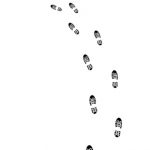
As a nurse educator who works in the critical care float pool, I have the opportunity to get a bird’s eye view of nursing practice.
But I have recently observed certain things lately that I see nurses do that are not best practice. I don’t think I am too picky or critical of what I see in practice but will let you decide.
I have put my observations in writing with the hope that whether you are a student, nurse, or nurse educator, use these insights to make sure that you are not guilty of being “that nurse!”
Little Things are Big Things
After 34 years of clinical practice in a wide variety of settings, I have observed that it is the little things that a nurse does or does not do that are the BIG things that can make a difference to the patient. Here is my current list of five reflections to help strengthen your nursing practice, so you are not accused of being “that nurse!”
1.Make sure the peripheral IV is taped and well secured
I have been flabbergasted by how often I have assumed care of another patient even in critical care, and the peripheral IV is being held in place by the clear Tegaderm dressing and barely one piece of tape that is already beginning to peel off. Don’t be that nurse!
Be intentional to check not only the IV site for signs of infiltration but be sure that is well secured. If not, take 15 seconds and use a couple of pieces of tape to secure. Better that, than to needlessly start an IV because it “accidentally came out!”
2.Keep your patient clean
It used to be that morning, or HS cares included a sponge bath and oral cares and a clean gown. I have noticed that some nurses do not make it a priority to provide necessary cares that will keep a patient feeling fresh and clean. Don’t be that nurse!
Note when basic hygiene was last done and take the time or delegate this task so that the patient benefits from your thoughtfulness.
3.Shave your male patients
If a male patient does not have facial hair, don’t start while he is your patient. Since most nurses are woman, they cannot identify with what a three-day growth of stubble on your face feels like.
It is like having a perpetually feeling of a dirty face. Don’t be that nurse!
If your male patient has noticeable stubble take a couple of minutes to shave him. His day will go a whole lot better when his face feels better!
4.Keep the sequential compression device (SCD) sleeves off the floor.
I am amazed at how often SCD sleeves are lying on the floor at the foot of the bed. Last time I checked the floor of any clinical setting is dirty, and anything that touches it is not as clean as it should be. Don’t be that nurse!
If the SCD sleeves are not on the patient, tuck them in at the footboard. You may prevent a nosocomial infection in the process!
5.Keep the room clean and in order.
Though I do not believe that I have OCD tendencies, I am surprised to see things on the floor that belong in the garbage, half ate dinner tray that is still there hours later, and general disorder on the nightstand or bedside table. Don’t be that nurse!
Take a minute and get the room in order. Remember that the essence of Nightingale’s nursing theory was the importance of the environment to bring healing. Be intentional to make sure that the room of each patient is clean and in order.
ACTION Step
Take a minute and reflect….have you been that nurse?
The wise nurse reflects consistently on one’s practice to ensure that not correct decisions and judgments are made but also doing the little things that communicate caring and excellence in practice.
If the shoe fits, do what is needed to make adjustments to your practice.
In Closing
The little things a nurse does do matter and make a difference to the patient in both tangible and intangible ways.
The most important skill a nurse must possess is the ability to clinically reason and think like a nurse. But use this list to reflect and integrate them into your practice so a balance between the thinking that is needed and attentiveness to the little things a nurse does that make a difference.
Think like a nurse and pay attention to the little things and you will be that nurse your patient and family will never forget!
Relevant Past Blogs to Strengthen Clinical Practice
- Clinical Pearls to Prepare Students for Practice
- How to Strengthen Nursing Head to Toe Assessment Skills
- What Students Must Know to Safely Care for Multiple Patients
Comment Question:
What would you add to this list of the little things that are really big things that need to be integrated into a new nurses practice?
Comment below and let the conversation begin!
Keith Rischer – PhD, RN, CEN
As a nurse with over 35 years of experience who remained in practice as an educator, I’ve witnessed the gap between how nursing is taught and how it is practiced, and I decided to do something about it! Read more…
The Ultimate Solution to Develop Clinical Judgment Skills
KeithRN’s Think Like a Nurse Membership
Access exclusive active learning resources for faculty and students, including KeithRN Case Studies, making it your go-to resource.




